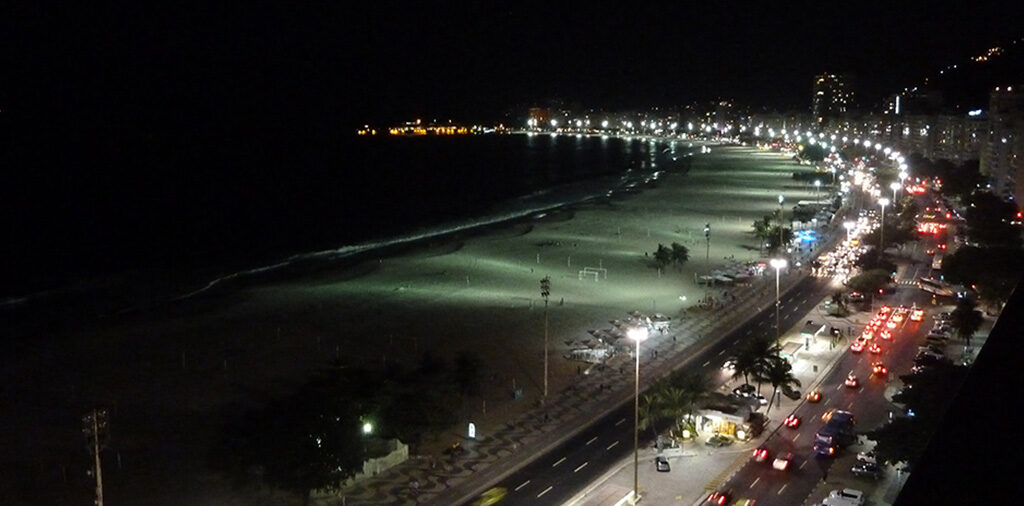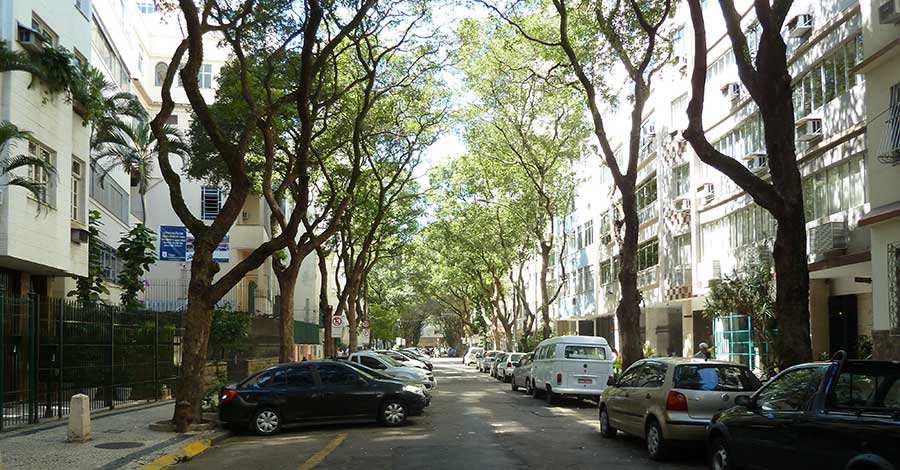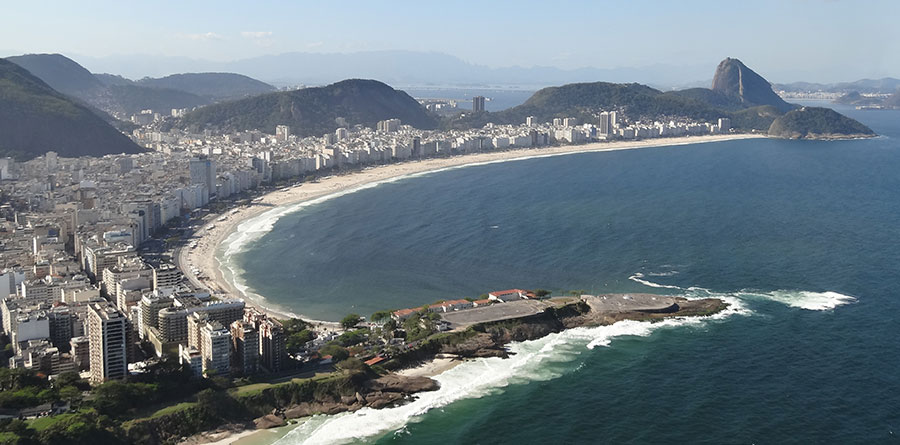What is the time difference in Rio de Janeiro?

Planning a trip to the vibrant city of Rio de Janeiro? One important aspect to consider when traveling to a new destination is the time difference. Rio de Janeiro, located in Brazil, follows Brasília Standard Time (BRT). So, how does this affect your plans?
Well, whether you’re a culture enthusiast exploring the iconic landmarks or a beach lover enjoying the sun-kissed shores, knowing the time difference will ensure you make the most of your time in this captivating city. Rio de Janeiro is just two hours ahead of Eastern Standard Time (EST), making it a convenient destination for travelers from North America.
This time difference allows you to easily adjust to the rhythm of the city, harmonizing your schedule with the lively locals and indulging in the vibrant nightlife. So, get ready to immerse yourself in the carnival spirit, samba to the beat of the music, and embrace the unique charm of Rio de Janeiro.
Understanding time zones in general
Time zones play a vital role in our globalized world, ensuring that different regions have a standardized way of measuring time. Time zones are based on the rotation of the Earth and are divided into 24 segments, each representing one hour. These segments help us coordinate activities and schedules across different geographical locations. Understanding time zones is crucial when planning trips or coordinating with people in different parts of the world.
One of the primary factors that determine time zones is the Earth’s rotation. As the Earth rotates on its axis, different parts of the world experience daylight and darkness at different times. This rotation creates a natural division of time zones, with each zone representing a specific range of longitudes. By following time zones, we can ensure that activities and interactions are synchronized, even across vast distances.
It’s important to note that not all time zones are exactly one hour apart. Some regions, like Rio de Janeiro, have time differences that deviate from whole hours due to geographical or political considerations. These deviations are known as time offsets and are determined by factors such as the region’s location, historical decisions, and political boundaries. In the case of Rio de Janeiro, it follows Brasília Standard Time (BRT), which is two hours ahead of Eastern Standard Time (EST).
Understanding the concept of time zones and their impact on travel and communication is essential for a seamless experience in any destination, including Rio de Janeiro.
The time difference in Rio de Janeiro

Rio de Janeiro, a vibrant city known for its stunning landscapes, rich culture, and lively atmosphere, operates on Brasília Standard Time (BRT). This time zone is two hours ahead of Eastern Standard Time (EST). If you’re planning a trip to Rio de Janeiro from a location in the Eastern Time Zone, you’ll need to adjust your clocks forward by two hours upon arrival.
The time difference between Rio de Janeiro and Eastern Standard Time can have various implications for travelers. Firstly, it’s important to consider this difference when planning your flight itinerary. Knowing the time difference will help you coordinate your arrival and departure times, ensuring a smooth transition and minimizing any potential disruptions to your schedule.
Additionally, understanding the time difference will allow you to synchronize your activities with the local rhythm. Whether you’re exploring the city’s iconic landmarks, indulging in the vibrant nightlife, or simply enjoying the sun-kissed shores, being aware of the time difference will help you make the most of your time in Rio de Janeiro. It allows you to adjust your schedule accordingly, ensuring that you don’t miss out on any experiences or events.
The two-hour time difference between Rio de Janeiro and Eastern Standard Time also makes it convenient for travelers from North America. With a relatively minor adjustment, you can seamlessly adapt to the local time zone and immerse yourself in the unique charm and energy of the city.
Factors affecting time difference

The time difference between different locations is influenced by several factors. These factors include geographical positioning, political decisions, and daylight saving time. In the case of Rio de Janeiro, the time difference is primarily determined by its geographical location and political considerations.
Geography plays a significant role in determining time differences as the Earth’s rotation causes variations in the amount of sunlight different parts of the world receive at any given time. Locations that are further east experience sunrise and sunset earlier than those further west. As a result, time zones are established to ensure that time is consistent within a specific region.
Political considerations also influence time differences. Governments have the authority to adopt or modify time zones based on their specific needs. In the case of Rio de Janeiro, it operates on Brasília Standard Time (BRT) due to its close proximity to Brasília, the capital of Brazil. This decision aligns Rio de Janeiro with the administrative center of the country and facilitates coordination between the two cities.
Daylight saving time is another factor that can impact time differences. This practice involves adjusting clocks forward by one hour during the summer months to extend daylight hours in the evening. However, Brazil does not observe daylight saving time, so the time difference between Rio de Janeiro and Eastern Standard Time remains consistent throughout the year.
By considering these factors, you can better understand the reasons behind the time difference in Rio de Janeiro and how it affects your travel plans.
How to calculate the time difference

Calculating the time difference between Rio de Janeiro and your current location is relatively simple. By following a few steps, you can determine the exact time difference and adjust your schedule accordingly.
- Determine the current time in your location: Check the local time in your current location using a reliable source such as a clock, smartphone, or online timekeeping service.
- Convert the time to Coordinated Universal Time (UTC): Coordinated Universal Time (UTC) is a standard time reference used globally. Convert your local time to UTC using the appropriate conversion tools or online resources.
- Determine the time in Rio de Janeiro: Once you have the UTC time, you can calculate the time in Rio de Janeiro by adding or subtracting the time difference. As Rio de Janeiro is two hours ahead of Eastern Standard Time (EST), you would add two hours to the UTC time to get the local time in Rio de Janeiro.
- Adjust your schedule: With the calculated time in Rio de Janeiro, you can adjust your schedule accordingly, ensuring that you arrive at your planned activities or appointments on time.
By following these steps, you can easily calculate the time difference between Rio de Janeiro and your location, helping you plan your trip effectively and ensure a seamless experience.
Daylight saving time in Rio de Janeiro

Daylight saving time (DST) is a practice followed by many countries to extend daylight hours during the summer months. However, Brazil, including Rio de Janeiro, does not observe daylight saving time. As a result, the time difference between Rio de Janeiro and Eastern Standard Time (EST) remains consistent throughout the year.
Not observing daylight saving time means that the time difference between Rio de Janeiro and locations that do observe it may vary during the summer months. When those locations adjust their clocks forward by one hour, the time difference between Rio de Janeiro and those locations may increase to three hours instead of the usual two hours. It’s important to keep this in mind when coordinating with individuals or scheduling activities during this period.
By understanding that Rio de Janeiro does not observe daylight saving time, you can ensure that you accurately calculate the time difference and avoid any confusion or scheduling conflicts during your visit to the city.
Time difference between Rio de Janeiro and other major cities

In addition to Eastern Standard Time (EST), it’s helpful to know the time difference between Rio de Janeiro and other major cities around the world. This knowledge can be especially useful for international travelers or individuals conducting business across different time zones.
Here are the time differences between Rio de Janeiro and some popular cities:
- New York, USA (Eastern Standard Time): Rio de Janeiro is two hours ahead of New York.
- London, United Kingdom (Greenwich Mean Time): Rio de Janeiro is three hours behind London.
- Paris, France (Central European Time): Rio de Janeiro is four hours behind Paris.
- Tokyo, Japan (Japan Standard Time): Rio de Janeiro is twelve hours behind Tokyo.
These time differences can help you plan your communications, meetings, and activities when interacting with individuals or businesses in these cities. By considering the time difference, you can avoid scheduling conflicts and ensure effective coordination across different time zones.
Tips for managing time differences
Managing time differences can sometimes be challenging, especially when traveling or working across multiple time zones. Here are some tips to help you effectively manage time differences and ensure a smooth experience:
- Plan your schedule: Before traveling or coordinating with individuals in different time zones, plan your schedule in advance. Consider the time differences and ensure that you have ample time for rest, activities, and communication.
- Use time zone converters: Utilize online time zone converters or smartphone applications to easily determine the time differences between locations. These tools can save you time and help you avoid calculation errors.
- Be mindful of daylight saving time: If your location observes daylight saving time while the destination does not, be aware of the potential variations in the time difference during the summer months. Adjust your schedules and communications accordingly.
- Communicate effectively: When working or communicating with individuals in different time zones, clearly state the time zone you are referring to and consider using universal time references such as Coordinated Universal Time (UTC) to avoid confusion.
- Plan buffer time: Allow for buffer time in your schedule to account for any unexpected delays or changes due to time zone differences. This will help reduce stress and ensure that you can adapt to any unforeseen circumstances.
By following these tips, you can effectively manage time differences and ensure a seamless experience when traveling or working across different time zones.
Tools and resources for tracking time differences
Several tools and resources are available to help you track time differences accurately. Here are some popular options:
- World Clocks: Online world clocks allow you to view multiple time zones simultaneously, making it easy to track the time differences between different locations.
- Time Zone Converters: Time zone converters, available as online tools or smartphone applications, allow you to quickly convert times between different time zones. These converters often provide additional features such as scheduling assistance and reminders.
- Smartphone Applications: Various smartphone applications offer features such as automatic time zone adjustments, global clocks, and alarms, which can help you stay on track and manage time differences effectively.
- Online Timekeeping Services: Reliable online timekeeping services provide accurate time information and often offer additional features such as countdown timers and meeting schedulers.
By utilizing these tools and resources, you can stay informed about time differences and ensure that you effectively manage your schedule, whether you’re traveling or conducting business across different time zones.
Conclusion

Understanding the time difference in Rio de Janeiro is essential for a seamless travel experience in this vibrant city. Rio de Janeiro follows Brasília Standard Time (BRT), which is two hours ahead of Eastern Standard Time (EST). This convenient time difference allows travelers from North America to easily adjust to the local rhythm and make the most of their time in Rio de Janeiro.
Factors such as geography, politics, and the absence of daylight saving time influence the time difference in Rio de Janeiro. By considering these factors and using tools and resources to track time differences accurately, you can effectively plan your schedule, coordinate with individuals in different time zones, and ensure a smooth experience.
So, whether you’re exploring the iconic landmarks, indulging in the vibrant nightlife, or simply enjoying the sun-kissed shores, knowing the time difference in Rio de Janeiro will help you immerse yourself in the unique charm and energy of this captivating city. Get ready to samba to the beat of the music, embrace the carnival spirit, and create unforgettable memories in Rio de Janeiro.
FAQ: Time Difference in Rio de Janeiro
What is the time difference in Rio de Janeiro?
Rio de Janeiro follows the Brasília Standard Time (BRT) zone, which is three hours behind Coordinated Universal Time (UTC-3).
Does Rio de Janeiro observe Daylight Saving Time?
No, Rio de Janeiro does not observe Daylight Saving Time. The time remains the same throughout the year.
Is there a time difference between Rio de Janeiro and other Brazilian cities?
most cities in Brazil, including Rio de Janeiro, follow the same time zone, which is Brasília Standard Time (BRT). This time zone is UTC-3 hours and covers a majority of Brazil’s population, including major metropolitan areas like Rio de Janeiro and São Paulo. Therefore, there is no time difference between Rio de Janeiro and other Brazilian cities that follow the BRT time zone.
How does the time difference in Rio de Janeiro affect international travelers?
International travelers need to consider the time difference when planning their activities and communication with people in different time zones.
How does the time difference impact business and communication in Rio de Janeiro?
The time difference between Rio de Janeiro and other countries can affect business communication, scheduling meetings, and coordinating with international partners.
Are there any significant time differences between Rio de Janeiro and major international cities?
Yes, there can be significant time differences between Rio de Janeiro and major international cities, such as New York (UTC-4) or London (UTC+0).
Is it easy to adjust to the time difference when traveling to Rio de Janeiro?
With a time difference of only a few hours, it is relatively easy for most travelers from North and Central America to adjust to the time difference when visiting Rio de Janeiro.
How can I keep track of the time difference between Rio de Janeiro and my home country?
You can use online world clock websites or smartphone apps to keep track of the current time in Rio de Janeiro and compare it with your home country.
Does the time difference affect flight schedules to Rio de Janeiro?
Flight schedules to Rio de Janeiro are typically adjusted to account for the time difference, ensuring smooth travel arrangements for passengers.
Is it necessary to reset my watch or device when traveling to Rio de Janeiro?
If your device or watch automatically adjusts to the local time zone, it will update to the correct time when you arrive in Rio de Janeiro. Otherwise, you may need to manually set the time to reflect the time difference.